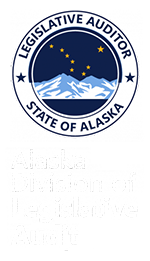| SUMMARY OF: | A Performance Audit of the University of Alaska (UA) Travel |
Why DLA Performed This Audit
The audit of the university’s travel was requested to identify potential savings and efficiencies. This audit reports travel expenditures, identifies opportunities for reducing costs and gaining efficiencies, provides recommendations to reduce the university’s travel expenditures, and provides a status of prior travel audit recommendations.
Report Conclusions
The university’s travel expenditures fluctuated between $22.1 million in FY 12 and $21.9 million in FY 14 with a significant decrease to $18.6 million in FY 15. According to management, the number of trips was intentionally decreased in FY 15 to contain costs. Further savings could be realized if UA implements changes recommended in this audit. A review of UA’s procurement practices found UA did not leverage its buying power and did not take advantage of the State’s contracts to achieve the best possible price for travel. Numerous State of Alaska contracts are available to the university that would help reduce travel costs. The audit estimates that the university could have reduced travel costs in FY 15 by $257,000 in airfares and $132,000 in car rentals if the State’s contracts had been utilized. Although the State’s airfare contracts were not utilized, the university did take advantage of savings offered through the Alaska Airlines EasyBiz program. In FY 15, the university redeemed 3.6 million EasyBiz miles for 234 tickets. Using the EasyBiz program reduced UA airfare costs; however, internal controls over EasyBiz mileage need improvement to ensure the efficient and authorized use of miles. The audit found UA’s travel scheduling and purchasing processes are decentralized with no single system used by all departments. The system-wide use of a travel booking tool and a single university credit card account would improve efficiency, transparency, and reduce costs. In FY 15, UA implemented a new electronic travel and expense management system. Despite its benefits, several University of Alaska Fairbanks (UAF) departments opted out of using the new system and did not realize the improved efficiency and transparency provided by the system.
The audit identifies four opportunities to reduce costs. First, purchasing airfares 14 days in advance would allow travelers to take advantage of the best rates available. Second, requesting the government lodging rate would have reduced UA’s lodging expenses by an estimated $44,000 in FY 15. Third, denying reimbursement of avoidable lodging taxes would have saved approximately $167,000. Finally, using campus lodging in the summer months would reduce lodging costs. In the transactions tested, using campus lodging during summer months could have reduced lodging costs by $24,000 in FY 15. To be effective, travel policy changes recommended by this audit should be codified in the university’s travel regulations. The audit found improvements were needed in the review of travel transactions. Testing of 140 travel transactions processed in FY 15 found 23 instances of noncompliance with UA regulations. The errors affected transportation, lodging, and per diem, resulting in incorrect calculations or reimbursements, inadequate approvals, and lack of documentation.
Findings and Recommendations
1. UA’s chief financial officer (CFO) should implement a consistent system-wide accounting structure to record travel.
2. UA’s CFO should take full advantage of State of Alaska travel related contracts to reduce travel costs.
3. UA’s president should consider acquiring a booking tool to obtain discounts and improve management of travel.
4. UA’s president should establish regulations to improve internal controls over EasyBiz accounts and mileage.
5. UA’s president should require the travel and expense management system be implemented by all UAF departments.
6. UA’s president should consolidate the three UA-issued credit cards into a single corporate account and limit use of personal credit cards for travel.
7. UA’s president should improve travel regulations to reduce travel costs.
8. UA’s CFO should work with each campus’ management to improve the review of travel transactions.

